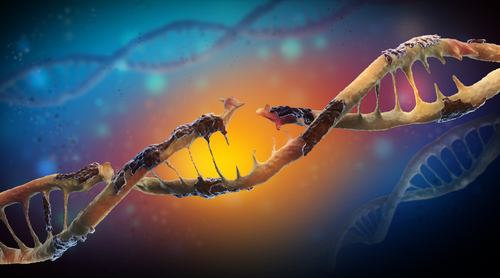The Gray Foundation awarded a $3.75 million grant to a researcher team to study how BRCA1 or BRCA2 mutations, along with other genetic anomalies, increase the risk of breast, ovarian, and other cancers.
The “team science grant” will fund the research for four years. The project is led by Patrick Sung, PhD, and a professor at UT Health San Antonio, working in collaboration with teams at University of Pennsylvania and the Dana-Farber Cancer Institute in Boston.
Women who inherit harmful mutations in the BRCA1 or BRCA2 gene are about six times more likely to develop breast cancer during their lives than women in the general population, according to a recent large study by the National Cancer Institute (NCI).
For ovarian cancer, the odds are even greater. About 1.3% of women in the general population will develop ovarian cancer sometime during their lives. By contrast, nearly 44% of women who inherit a harmful BRCA1 mutation and about 17% with a harmful BRCA2 mutation will develop ovarian cancer by the age of 80.
“We are talking about many millions of people being affected by mutations in BRCA1 and BRCA2 genes, so this is a really big deal,” Sung, a leading researcher in BRCA1 and BRCA2, said in a press release.
The team’s goal is to study in detail how inactivation of BRCA genes and other anomalies that reduce a cell’s ability to repair DNA damage can lead to cancer.
BRCA1 and BRCA2 are tumor suppressor genes. That is, they produce proteins that help prevent cells from growing and dividing too rapidly or in an uncontrolled way, so to suppress tumor development. These proteins help repair damaged DNA and, as such, are important for keeping each cell’s genetic material stable.
DNA is under constant stress both from a cell’s internal processes, such as cell division errors, and from environmental insults that can damage it.
When any of these genes are mutated, the resulting protein is not made or does not work properly. As a result, cells cannot repair DNA damage correctly, and become more vulnerable to a buildup of genetic alterations that can lead to cancer.
“These genes help orchestrate the removal of potentially harmful lesions from DNA. As such, BRCA mutations compromise the integrity of our genetic blueprint, resulting in malignant transformation of cells in the breast and ovary to cause cancer,” said Sung, who holds the Robert A. Welch Distinguished Chair in Biochemistry at UT Health.
“The knowledge garnered from our endeavors will endow medical practitioners with the wherewithal to counsel women regarding cancer risk, to predict the durability of drug efficacy and to explain how drug resistance arises,” he added.
“Importantly, the results from our project will provide the foundation for the development of improved cancer treatment regimens and cancer drugs.”
The grant will also enable collaborators to study the activation of BRCA-independent DNA repair pathways, and how other mutations affecting regulators of BRCA-dependent DNA repair lead to cancer.
Gray Foundation is committed to accelerate research, improve treatment and raise awareness for individuals who have inherited BRCA mutations. The foundation also works to improve access to education, healthcare, and opportunity for low-income youth in New York City.

